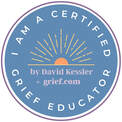|
“The blow of a whip raises a welt, but a blow of the tongue crushes the bones. Many have fallen by the edge of the sword, but not as many as have fallen because of the tongue.” --Ben Sira 28:17-18
The past couple of posts have discussed the work of Brené Brown and the research she has done on shame. This week, we explore how shame manifests in the way we talk to others. As I read Brené’s work, one of the things that struck me was how powerful our words are. When we ourselves are not feeling good and are in a place of shame, an often automatic response is to shame others. Shame is a tool to control others and is often used as a form of discipline. Although we no longer use the ‘dunce hat’ on the child sitting in the corner as a form of punishment, many of the techniques and ways we discipline are equally as shaming. This post is difficult for me to write, because as I start looking back at things that I said and did as both a parent and teacher, I now realize how much shaming I did, often in the name of discipline. It is not easy for me to look back and recognize how hurtful some of the comments that I made must have been. I remember saying things like, ‘How old are you?’ and ‘Look at how nice everyone else is sitting.’ While at the time I was attempting to get my students to behave, I now understand the magnitude of the shaming words I spoke. When my son picked out an outfit that didn’t match and I argued with him to change into something more ‘appropriate,’ there was shame in implying that his choice of outfit was not good enough. Over and over I can recall times when I shamed. Increasing my awareness of the power of shame has affected the way I talk to others. I am now much more aware of whether my words are building someone up or shaming them. It is not easy though. I still find myself shaming without thinking about it until later. Being critical, judging or laughing at someone are all ways that we shame without realizing it. They are easy traps to fall into. Shame is a message that there is something wrong with me and I’m not lovable. It isn’t hard for someone to get the message of shame just from the tone of my voice, the way I look at them or my body language. We don’t even need words to shame! Becoming aware in the moment of the interaction takes practice. It is frightening to think about how many times I use shame without my conscious awareness of it. What would change if we all thought about the destructive force of shame and increased our awareness of it before speaking? Are you ready to communicate without shame?
0 Comments
“Shame is the most powerful, master emotion. It's the fear that we're not good enough.” --Brené Brown
In the previous post I introduced the work of Brené Brown and the distinction she makes between shame and guilt. She identifies shame as a fundamental feeling of unworthiness or brokenness. It is something that is wrong with us. Guilt is recognizing that a behavior is not in alignment with our values or who we say we are. Guilt is focused on what was done and is therefore is something that we can change. There is an important distinction between shame and guilt in how we see ourselves and interact with the world. Dr. Linda Hartling’s research identified three strategies of disconnection, which Brené has termed our ‘Shame Shields.’ They are Moving Away, Moving Towards, and Moving Against.
“Guilt is just as powerful, but its influence is positive, while shame's is destructive. Shame erodes our courage and fuels disengagement.” --Brené Brown
Shame is a topic most people avoid. It is uncomfortable and dark. The truth is, we all have shame. It is a universal emotion and research has shown that the only people who don’t feel shame are those that are pathologically unable to feel empathy. So, if you can empathize you have shame. While most people use the terms shame and guilt interchangeably, Brené Brown has helped me to understand that there is a significant difference between them. This understanding has changed the way I look at situations and has made me aware my own self-talk. Brené makes the distinction between the two in this way; shame is a label of who we are and guilt is a behavior or something that was done. Shame is a fundamental belief that there is something wrong with us. It is the feeling of being flawed or unworthy. Guilt is the recognition of a behavior that is not in alignment with who I say I want to be. When I make a mistake at work, if my self-talk is about how stupid I am or what an idiot I am, that is shame. If my self-talk is about what a stupid mistake I made, that is guilt. It sounds like a slight difference, ‘I am stupid,’ versus ‘I did something stupid,’ but the distinction is critical. When we are in shame, there is something wrong with us and we have no power to change who we are. When we did something wrong, it is the behavior that is not working. We can change a behavior. We can’t change who we are. The distinction between these two is absolutely critical. As you begin to listen to your own self-talk, take note of any shaming statements and see if you are able to shift them to focus on the behavior or situation instead. This is a challenge, but it is important to discern which thoughts are empowering us to change and which are keeping us stuck. For example, when I look in the mirror and tell myself that I’m fat and focus on scale numbers that keep going up, I’m in shame. When I notice myself talking like this, I can choose to instead remind myself that I have been eating fast food and have not been exercising regularly, which have caused the scale numbers to go up. I now have the power to make a behavior change. I may feel guilt about the number on the scale, but recognizing that there is a behavior I can change gives me the power to do something about it. Guilt can be a powerful motivator for change, but shame eats away at our core sense of value. Shame is a deep topic and Brené Brown has written extensively on it. I will share more about her research and her understanding of how shame works in the next few weeks. “My best friend is the one who brings out the best in me.” –Henry Ford
There is a big difference between the disease of addiction and other health related diseases. When someone battling cancer has a relapse they are often surrounded with love and support, but when someone suffering from addiction has a relapse, most people cut them off and avoid them. The love given to someone dealing with cancer is withheld from some going through addiction. It is not easy to be around someone struggling with addiction, but does shame and isolation work to get them to stop using? I was at a conference last week and Brené Brown asked a very powerful question. “Does shame and isolation make people more or less dangerous?” Think about the implications of that question. We have realized for decades that shaming hurts people, yet it is one of the most frequently used techniques to control behavior. What we all long for is connection. It is the support piece that is often missing and what we, as humans, crave. We are wired for connection. It is part of our genetic makeup. From the time we are born until the time we die, we look for connection with others to share this experience of life. Somehow in our society we seem to have adopted a belief that we need to pull ourselves up by our bootstraps and go on alone. While it is true that we are the only one who can choose our behavior, having someone to talk to and share experiences helps to shift our perspective. Successful recovery includes forming a positive social support network. We all need at least one close friend to be open and honest with in our lives. We need that one person we can talk to when we have entered a ‘shame storm.’ It is someone who can help remind us that we can do better next time and help us to see that all is not lost. Social support is a critical piece of successful recovery and successful living. If you know someone who is suffering from addiction, take notice if people around them are using shame or isolation to try to change their behavior. Reach out and provide a connection. It may save their life. |
Archives
April 2020
Categories
All
|
 RSS Feed
RSS Feed




